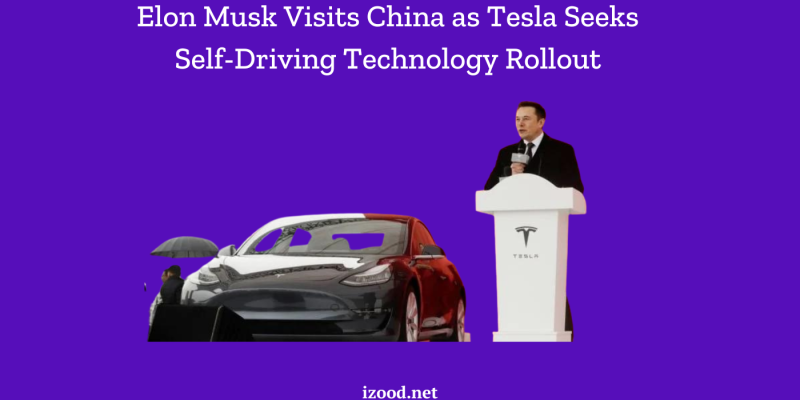
Elon Musk, CEO of Tesla, has made a visit to China, marking a significant milestone for the electric vehicle (EV) industry and Tesla’s global expansion. The visit comes at a crucial time for Tesla as it seeks to establish a strong foothold in the burgeoning Chinese market, particularly in the realm of autonomous driving technology.
The Chinese Market: Tesla’s Second-Biggest
China has been a key player in Tesla’s global strategy, serving as the company’s second-largest market after the United States. With a rapidly growing EV sector and a government that has shown strong support for green technology, China has presented numerous opportunities for Tesla to expand its operations.
Autonomous Driving in China: Clearing Regulatory Hurdles
One of the main objectives of Elon Musk’s visit is to pave the way for Tesla’s rollout of Full Self-Driving (FSD) technology in China. Recently, Tesla cleared a significant hurdle in this regard, securing a mapping deal with Baidu. This partnership will enable Tesla to integrate Baidu’s mapping services into its FSD system, allowing for improved navigation and autonomous driving capabilities within China’s regulatory framework.
The Baidu deal is a crucial step forward for Tesla’s FSD ambitions, as mapping technology forms a foundational aspect of any autonomous driving system. By collaborating with a Chinese company, Tesla aims to navigate the complex regulatory landscape and ensure its FSD technology aligns with local standards.
Strengthening Ties with Chinese Business and Government
Elon Musk’s visit also aims to strengthen Tesla’s relationship with Chinese business partners and government officials. This could involve discussions on various aspects of Tesla’s operations, including expanding its manufacturing capabilities, navigating regulatory challenges, and addressing potential supply chain issues.
Tesla’s Shanghai Gigafactory, which began production in 2019, has been instrumental in meeting the growing demand for electric vehicles in China. The facility has also contributed significantly to Tesla’s global production capacity. Future discussions may focus on further scaling operations at the Gigafactory or exploring additional opportunities for manufacturing expansion.
Future Prospects for Tesla in China
Musk’s visit highlights the strategic importance of the Chinese market to Tesla’s overall business model. Beyond the FSD rollout and mapping deal, the visit could lead to further initiatives that reinforce Tesla’s position in the Chinese EV market.
Additionally, the partnership with Baidu may signal future collaborations with other Chinese companies, potentially opening doors to technological advancements, new business opportunities, and innovative services for Tesla’s vehicles.
In conclusion, Elon Musk’s visit to China signifies Tesla’s continued commitment to its Chinese operations, especially in the realm of self-driving technology. The visit also demonstrates Tesla’s broader strategy to expand its presence in key global markets, ensuring its growth and success in the rapidly evolving EV industry.











